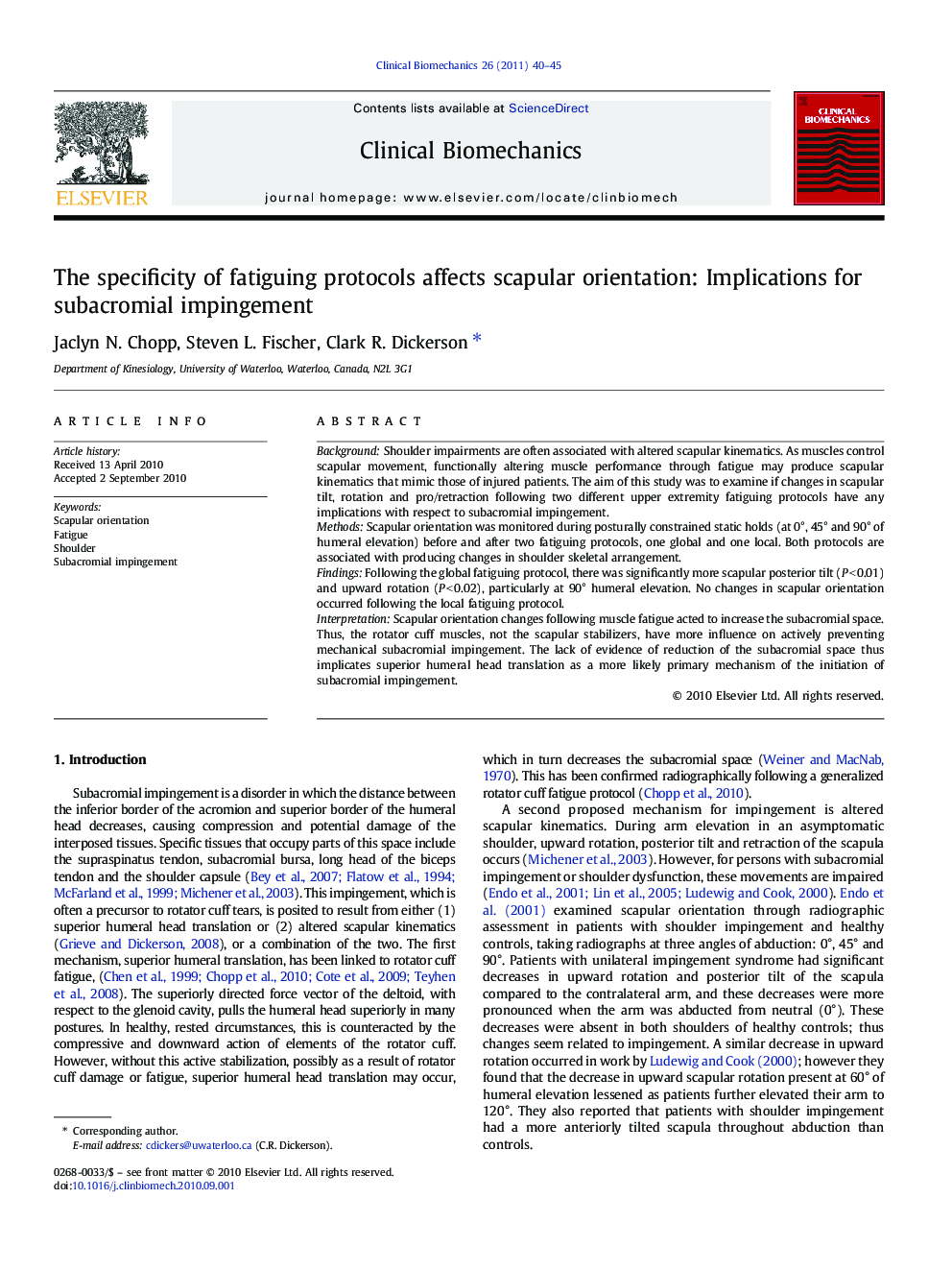| کد مقاله | کد نشریه | سال انتشار | مقاله انگلیسی | نسخه تمام متن |
|---|---|---|---|---|
| 4051003 | 1264969 | 2011 | 6 صفحه PDF | دانلود رایگان |

BackgroundShoulder impairments are often associated with altered scapular kinematics. As muscles control scapular movement, functionally altering muscle performance through fatigue may produce scapular kinematics that mimic those of injured patients. The aim of this study was to examine if changes in scapular tilt, rotation and pro/retraction following two different upper extremity fatiguing protocols have any implications with respect to subacromial impingement.MethodsScapular orientation was monitored during posturally constrained static holds (at 0°, 45° and 90° of humeral elevation) before and after two fatiguing protocols, one global and one local. Both protocols are associated with producing changes in shoulder skeletal arrangement.FindingsFollowing the global fatiguing protocol, there was significantly more scapular posterior tilt (P < 0.01) and upward rotation (P < 0.02), particularly at 90° humeral elevation. No changes in scapular orientation occurred following the local fatiguing protocol.InterpretationScapular orientation changes following muscle fatigue acted to increase the subacromial space. Thus, the rotator cuff muscles, not the scapular stabilizers, have more influence on actively preventing mechanical subacromial impingement. The lack of evidence of reduction of the subacromial space thus implicates superior humeral head translation as a more likely primary mechanism of the initiation of subacromial impingement.
Journal: Clinical Biomechanics - Volume 26, Issue 1, January 2011, Pages 40–45